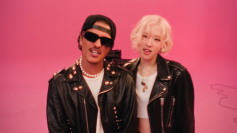The digital realm is abuzz with the recent controversy involving Taylor Swift and the circulation of AI-generated explicit images on X, the platform formerly known as Twitter. Swift, a global music icon known for her devoted fan base and chart-topping hits, found herself at the center of a digital scandal that raises critical questions about privacy, consent, and the ethical use of artificial intelligence in creating content.
Earlier this week, Swift's likeness was used in computer-generated imagery depicting her in compromising situations, sparking outrage among her fans and prompting a swift response from X. The platform took temporary measures to make Swift unsearchable, stating, "This is a temporary action and done with an abundance of caution as we prioritize safety on this issue." The move underscores the platform's attempt to navigate the complex terrain of digital safety and content moderation.
The fabricated images, which also implicated Swift's partner, Travis Kelce, quickly spread across social media, leading to a groundswell of support from Swift's fans, affectionately known as Swifties. They urged the public to refrain from sharing the manipulated content, highlighting the distress and harm such images can cause to the individuals depicted.
An insider close to Swift revealed to the Daily Mail the singer's outrage over the incident and her contemplation of legal action. The unauthorized creation and distribution of these images, described as "abusive, offensive, and exploitative," spotlight the darker side of AI technology and its potential to inflict real-world harm.
The controversy has sparked a broader conversation about the need for legislative action to address the challenges posed by AI-generated content. The White House, through press secretary Karine Jean-Pierre, weighed in on the matter, advocating for Congress to enact laws that protect individuals from digital harassment and exploitation. "Of course, Congress should take legislative action," Jean-Pierre emphasized, highlighting the role of policy in curbing the misuse of AI.
The incident has not only mobilized Swift's fan base but has also drawn attention to the urgent need for regulatory frameworks that can keep pace with technological advancements. The hashtag "Protect Taylor Swift" gained momentum on social media, serving as a rallying cry for those seeking justice and accountability for the creation and dissemination of AI-generated explicit content.
As the dust settles on this controversy, the question remains whether Swift will permanently depart from X. The platform, which has been a vital tool for celebrities to connect with their audiences, now finds itself at a crossroads, challenged to balance the principles of free expression with the imperative to protect its users from digital harm.
The Taylor Swift AI image saga serves as a stark reminder of the ethical considerations and potential pitfalls associated with artificial intelligence in content creation. It underscores the importance of consent, privacy, and the need for robust legal and regulatory mechanisms to safeguard individuals in the digital age.






